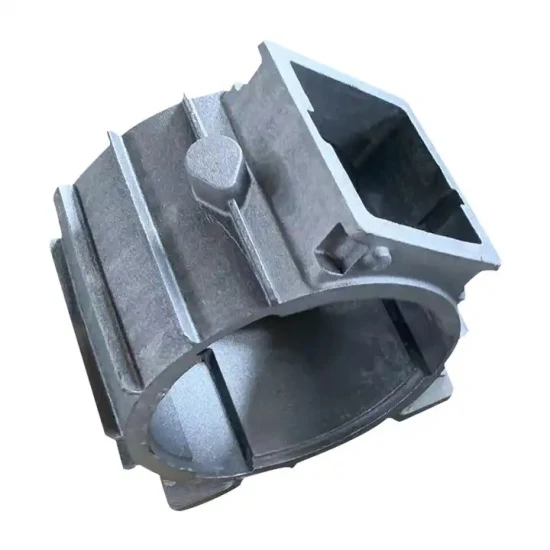Stahl Specialty Company Fundamentals Explained
Stahl Specialty Company Fundamentals Explained
Blog Article
The Definitive Guide to Stahl Specialty Company
Table of ContentsThe Basic Principles Of Stahl Specialty Company Some Known Incorrect Statements About Stahl Specialty Company Stahl Specialty Company Things To Know Before You Get ThisStahl Specialty Company Can Be Fun For EveryoneStahl Specialty Company Things To Know Before You Get This
Chemical Contrast of Cast Light weight aluminum Alloys Silicon advertises castability by decreasing the alloy's melting temperature level and improving fluidness throughout spreading. In addition, silicon adds to the alloy's stamina and put on resistance, making it beneficial in applications where toughness is critical, such as vehicle parts and engine parts.It likewise enhances the machinability of the alloy, making it much easier to process into completed items. This way, iron adds to the overall workability of aluminum alloys. Copper raises electric conductivity, making it helpful in electrical applications. It likewise enhances deterioration resistance and contributes to the alloy's overall toughness.
Manganese adds to the toughness of light weight aluminum alloys and improves workability. It is commonly utilized in functioned light weight aluminum items like sheets, extrusions, and accounts. The presence of manganese help in the alloy's formability and resistance to splitting throughout fabrication processes. Magnesium is a light-weight component that gives stamina and effect resistance to aluminum alloys.
It enables the manufacturing of lightweight parts with outstanding mechanical buildings. Zinc improves the castability of light weight aluminum alloys and helps manage the solidification procedure throughout casting. It improves the alloy's strength and solidity. It is typically located in applications where complex forms and fine details are necessary, such as decorative spreadings and certain auto components.
Not known Factual Statements About Stahl Specialty Company
Since aluminum-silicon alloys have great spreading residential or commercial properties, high gas residential properties, simple procedures, and outstanding rust resistance, aluminum-silicon alloys are most generally utilized in the die-casting market at home and abroad. At the same time, aluminum-silicon alloys are additionally relatively early and widely identified alloys developed and utilized in die-casting. After continual research study and renovation, the majority of the existing international mainstream aluminum-silicon alloys have been settled and are nothing greater than A356, A360, A380, ADC12, B390, and A413.
The primary thermal conductivity, tensile strength, yield strength, and elongation differ. Select suitable resources according to the performance of the target product produced. Amongst the above alloys, A356 has the greatest thermal conductivity, and A380 and ADC12 have the most affordable. The tensile limit is the contrary. A360 has the best return strength and the highest elongation rate.

Some Ideas on Stahl Specialty Company You Should Know
In precision spreading, 6063 is fit for applications where detailed geometries and high-grade surface area coatings are vital. Instances include telecommunication units, where the alloy's exceptional formability permits smooth and aesthetically pleasing designs while maintaining structural integrity. In the Lights Solutions sector, precision-cast 6063 parts create stylish and effective lighting fixtures that need complex forms and good thermal efficiency.
(https://papaly.com/categories/share?id=c26321f23f6c4357aeb3039fb1053821)
The A360 shows exceptional prolongation, making it optimal for complex and thin-walled components. In precision casting applications, A360 is well-suited for industries such as Consumer Electronic Devices, Telecommunication, and Power Tools.

In accuracy spreading, light weight aluminum 413 radiates in the Customer Electronic Devices and Power Tools industries. It's frequently used to craft detailed components like smart device real estates, electronic camera bodies, and power tool cases. Its accuracy is impressive, with tight tolerances as much as 0.01 mm, making sure remarkable product assembly. This alloy's premium rust resistance makes it an excellent selection for outdoor applications, making sure resilient, long lasting products in the mentioned markets.
Rumored Buzz on Stahl Specialty Company
The light weight aluminum alloy you choose will considerably impact both the spreading process and the residential or commercial properties of the last item. Because of this, you need to make your decision meticulously and take an enlightened approach.
Identifying the most suitable light weight aluminum alloy for your application will certainly indicate considering a broad selection of attributes. The initial classification addresses alloy characteristics that influence the manufacturing process.
The alloy you select for die casting straight influences numerous elements of the spreading process, like exactly how easy the alloy is to function with and if it is susceptible to casting issues. Warm splitting, also called solidification fracturing, is a regular die spreading problem for light weight aluminum alloys that can result in interior or surface-level splits or cracks.
Stahl Specialty Company Fundamentals Explained
Specific aluminum alloys are extra susceptible to warm splitting than others, and your option must consider this. aluminum metal casting. It can damage both the actors and the die, so you must look for alloys with high anti-soldering homes.
Deterioration resistance, which is already a notable quality of aluminum, can differ substantially from alloy to alloy and is a crucial characteristic to consider relying on the environmental conditions your product will certainly be revealed to. Use resistance is an additional residential or commercial property commonly sought in light weight aluminum products and can set apart some alloys.
Report this page